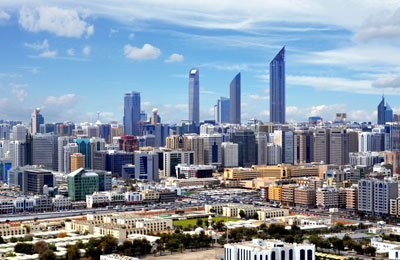
Abu Dhabi gets stable outlook from Fitch
Abu Dhabi, September 15, 2012
Fitch Ratings has affirmed Abu Dhabi's long-term foreign and local currency Issuer Default Ratings (IDR) at 'AA' and its short-term foreign currency IDR at 'F1+' with a stable outlook.
Fitch has also affirmed the UAE country ceiling at AA+'. The affirmation and stable outlook reflect the continued strength of Abu Dhabi's sovereign balance sheet, said a statement from the ratings agency.
This is estimated to be the second strongest amongst rated sovereigns measured by sovereign net foreign assets (SNFA), and conveys exceptional fiscal flexibility.
Foreign assets are estimated to have risen again in 2011, despite a dip in investment returns, as the general government budget moved further into surplus, despite a substantial spending increase, said Fitch.
The foreign assets held in Abu Dhabi's main sovereign wealth fund (ADIA) are estimated by Fitch to be around $300 billion.
This is at the low end of the range of independent estimates and compares with just $3 billion of direct sovereign external debt after the maturing of a $1 billion eurobond earlier this year, it added.
The agency estimates the overall fiscal surplus, including Adnoc dividends and ADIA investment income, improved sharply in 2011 despite an almost one-third rise in expenditure and net lending.
This follows a deficit in 2009 - only the fourth in 30 years - when fiscal policy was determinedly countercyclical and exceptional assistance was provided to Abu Dhabi state-owned enterprises (SOEs), banks and other government related enterprises (GREs) as well as to Dubai.
The resumption of spending growth in 2011 after virtually no increase in 2010 followed the go-ahead given to key projects after completion of a comprehensive review.
Exceptional support for private construction firm Aldar accounted for one quarter of the total spending increase, similar to the increase in support for SOEs. Current spending (excluding transfers to the UAE government) rose by over 20 per cent, said the ratings agency.
Ongoing budget support to SOEs, including Mubadala, IPIC and TDIC (all aligned with the sovereign rating by Fitch) averaged over 10 per cent of GDP in 2009-2011.
Ad hoc and ongoing support for Abu Dhabi public and private enterprises demonstrates the potential cost of contingent liabilities, it stated.
However, the emirate's ability to provide such support without so far seriously denting its balance sheet also emphasises its considerable fiscal flexibility.
There is a risk that the UAE capital will have to dedicate more resources to meeting contingent liabilities, but Fitch considers the amount that will crystallise is still small compared with sovereign resources, it added.
Abu Dhabi's overall balance sheet, taking into account both public and private sector external debt, remains stronger than 'AA'/'AAA' medians but is weaker than some 'AA' peer countries and weaker as a percentage of GDP than before the 2009 crisis, said Fitch in its ratings.
However, SOE/GREs also have external assets which Fitch's analysis cannot take into account in the absence of a comprehensive balance sheet for "Abu Dhabi Inc, its stated.
Abu Dhabi has the second-highest per capita income of any rated sovereign, founded on a high per capita hydrocarbons endowment. However, human development and business environment indicators (albeit for UAE as a whole) are generally weaker than 'AA' medians, according to Fitch.
Political stability is high and UAE has seen no significant contagion from 'Arab Spring' protests in the region. However, checks and balances on executive power and governance are weaker than for typical 'AA' sovereigns, it added.-TradeArabia News Service







